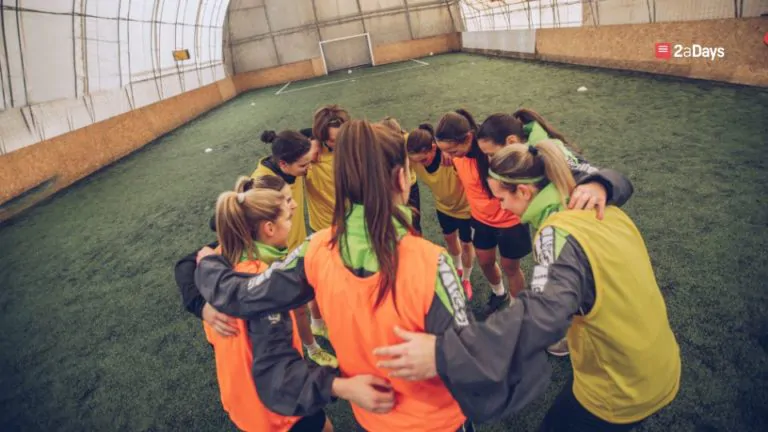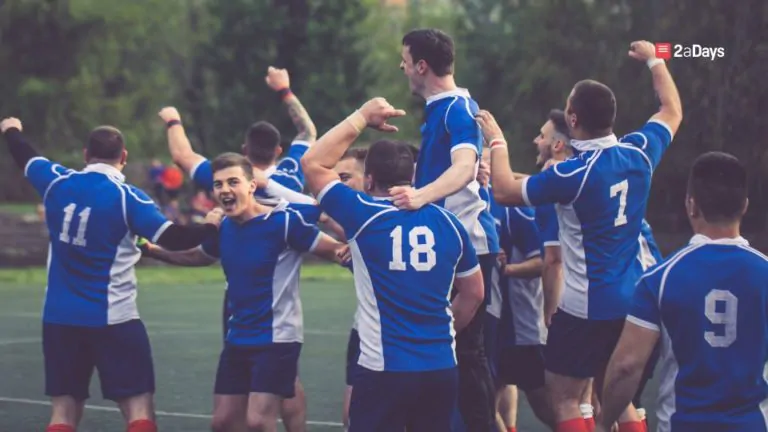In order to become a high-level athlete, training is an absolute must. Improving your skills, getting stronger and faster, and understanding the game better are all important benefits of training for a sport. In order to make it to the next level, your commitment to your training has to be very high. You have to be willing to spend more time, endure more fatigue, and overall put more strain on your brain and body than most athletes do if you truly dream of making it to the next level.
That being said, having a balance of rest and recovery with your training is equally important. This raises the question: how much training is too much? Believe it or not, overtraining is a real and dangerous risk of being a high-level athlete, but how do you know if you're pushing yourself too hard? Everyone's body is different, so it is important to know your own individual situation, but we've come up with a list of general signs that you are overtraining, and tips on how to keep a healthy balance in your training.
Related: Women Who Have Made Sports History: Donna Lopiano
What to Watch Out for:
Elevated Heart Rate:
The average resting heart rate for people generally falls between 60-100BPM, but keep in mind that high-level athletes will most likely have a lower resting rate than this. It's best to know your individual resting rate beforehand, and to constantly monitor your heart rate as you train. If you ever notice that your resting rate is unusually high after recovering from a training session, this may be a sign you're overtraining.
Excessive Muscle Soreness:
Muscle soreness happens almost every time you train, so it may seem like nothing out of the ordinary. Depending on your training intensity, your initial level of soreness and the lasting length of that soreness may vary, but if you notice that you are still sore several days after a training session (or more sore than usual), this may be a sign that your muscles are overly exhausted, and that you have been overtraining.
Related: A Water Polo Athlete's Tips to Recover from an Injury
Sleep Problems:
You would expect that after a hard day training on the field or lifting in the gym, that you would pass out the second your head hits the pillow. If you're overtraining, this might not be the case. If you are overtraining, you might notice that no matter how exhausted your brain and body are at night, you struggle to fall asleep or to get good quality sleep. If you experience this, definitely take note of it. This could be a sign that your body needs some extended rest, not just a few hours of sleep.
Related: 6 Tips to Improve Your Sleep Schedule
Injuries:
As an athlete, it is all but inevitable that you will get injured throughout your career; however, this doesn't mean you shouldn't pay attention to your injuries. If you find yourself getting injured frequently, or that injuries you have aren't healing, you could be overtraining. If you are getting injured more than usual, it is pertinent to your health that you give your body a rest period to recuperate back to normal performance.
Related: Step-by-Step Guide to Handling Acute Muscle Injury
Tips for Keeping a Balance:
- Keep a schedule for your training. Pre-planning your rest days is a great way to stay on track and keep your body healthy at the same time.
- Purchase a heart rate monitor. If you're serious about your recovery and training, a heart rate monitor is a great way to keep track of how your body is responding to your training.
- Keep your sessions to a reasonable length. Training for hours on end without stopping can hinder your development more than help it. Know your body. Keeping sessions to a reasonable length can help to prevent overtraining in the first place.
- Stay on top of your nutrition. For high-level athletes, nutrition is just as important as training. Properly refueling your body after training aids recovery and development, before, during, and after training.
Overtraining is a real danger to watch out for. If you overtrain, you are hurting your body more than helping it. Again, everyone's body is different, so it's important to know yourself first and foremost. Maintaining a balance in your training is vital to any athlete trying to make it to the next level.
Have an idea for a story or a question you need answered? Want to set up an interview with us? Email us at [email protected]
* Originally published on March 1, 2022, by Tyler Traskos







